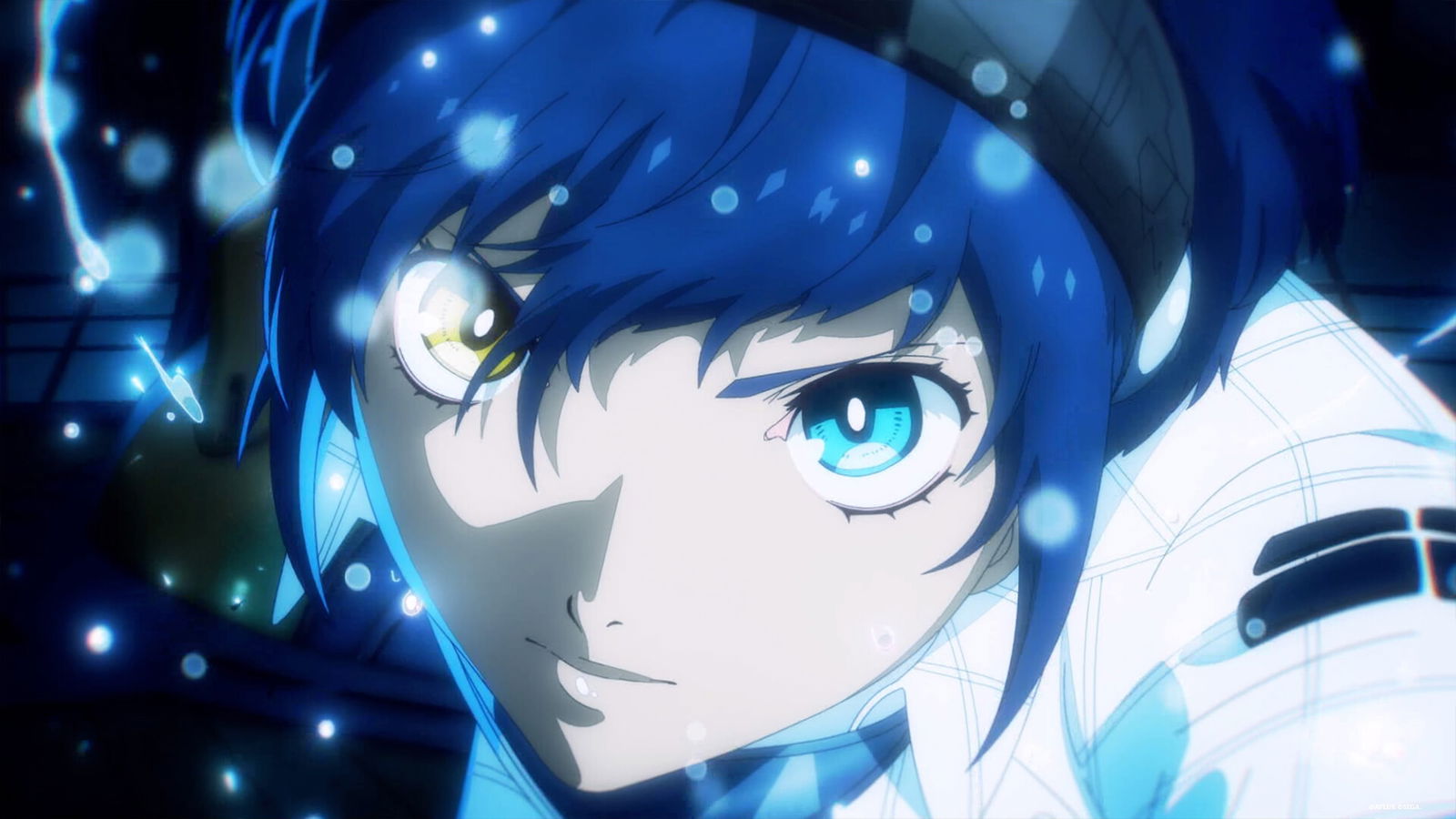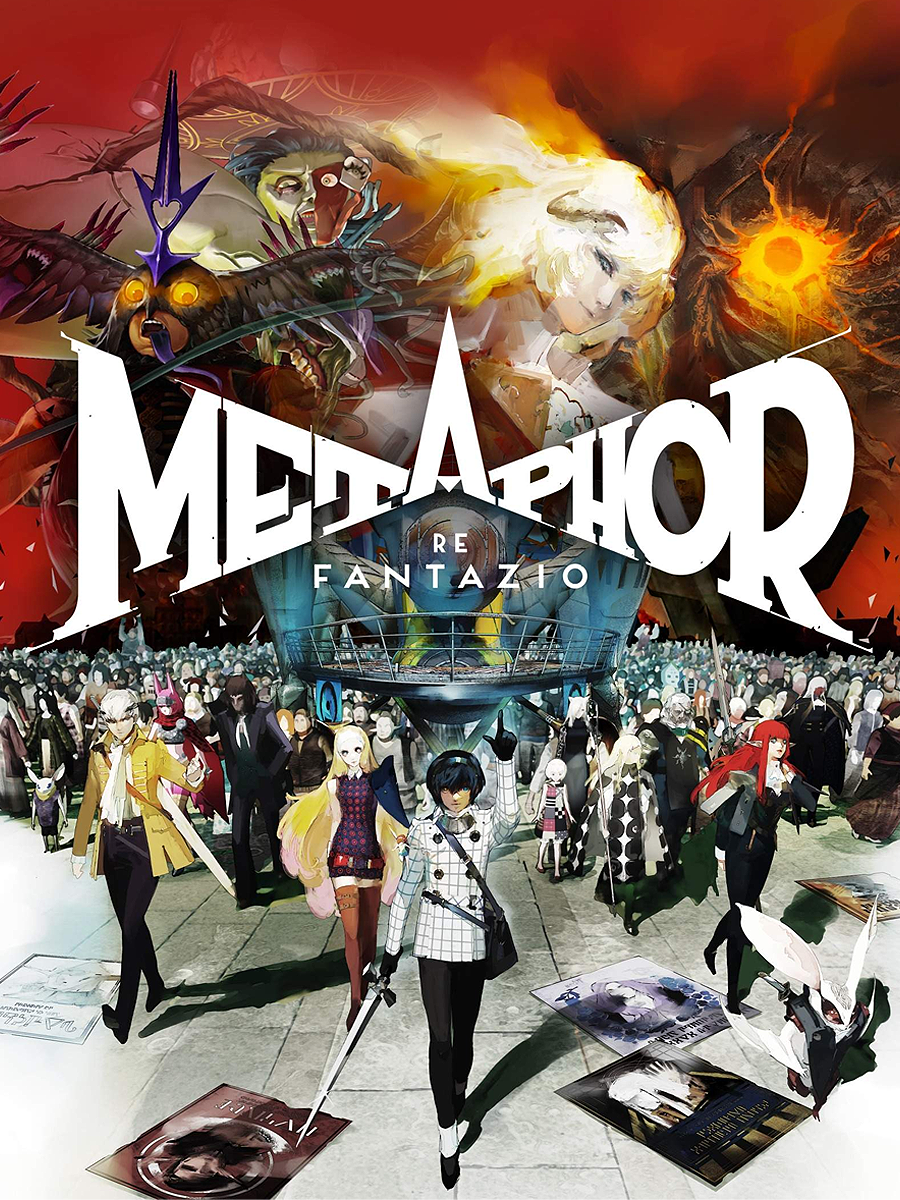Building on the foundations of Atlus’ previous works like Persona and Shin Megami Tensei, Metaphor: ReFantazio offers a unique experience centred around the rise of a villain who seeks to claim the throne through manipulation while a group of unlikely heroes unites to stop them. Much like in previous Atlus games, Metaphor‘s core strength lies in its ability to craft memorable characters, thoughtful political intrigue, and an emotionally charged storyline.
The plot of Metaphor: ReFantazio centers around a kingdom in turmoil after the death of its last ruler. At the time of his death, the king enacted a powerful spell to ensure a new ruler would rise to power after a certain period. However, instead of naming his successor, his son—who was presumed dead for years—the spell has a double-edged effect: it grants the throne to whoever holds the most influence and backing at the end of this period. This key factor allows a ruthless villain to exploit the system. With support from powerful factions, this villain threatens to claim the throne and impose a reign of terror on the kingdom, all while remaining unknown to its citizens.

Players take on the role of an unlikely hero, an Elda—one of a group of branded heretics who have learned and inherited destructive magic. Each character brings their own motivations, skills, and emotional baggage, creating a dynamic group of heroes who must set aside their differences and work together to stop the villain from ascending to the throne. As they navigate political intrigue, shifting alliances, and betrayal, they also grapple with personal dilemmas and emotional scars. To Atlus’ credit, every party member embarks on a rollercoaster journey, making them feel like living, breathing characters with their own thoughts and feelings in this richly crafted world.
“Metaphor: ReFantazio offers a unique experience centered around the rise of a villain who seeks to claim the throne through manipulation while a group of unlikely heroes unites to stop them.”
The themes of Metaphor: ReFantazio are deeply rooted in ideas of power, corruption, and the nature of leadership. It challenges the party to consider what truly makes a good ruler—is it morality, wisdom, or influence? In a world where power is bought, manipulated, and controlled, the question of who deserves the throne becomes more complex than merely defeating an enemy. The game continuously asks the player to reflect on the consequences of leadership and the weight of responsibility.
The dialogue is sharp, well-written, and tense, giving each character depth and a real sense of purpose. There are moments of intense drama and action, but also quiet, reflective scenes that allow the characters to develop and grow throughout the journey. This gives the overall story an emotional weight similar to what we’ve seen in other Atlus games, but Metaphor easily stands out as their best work in this regard.
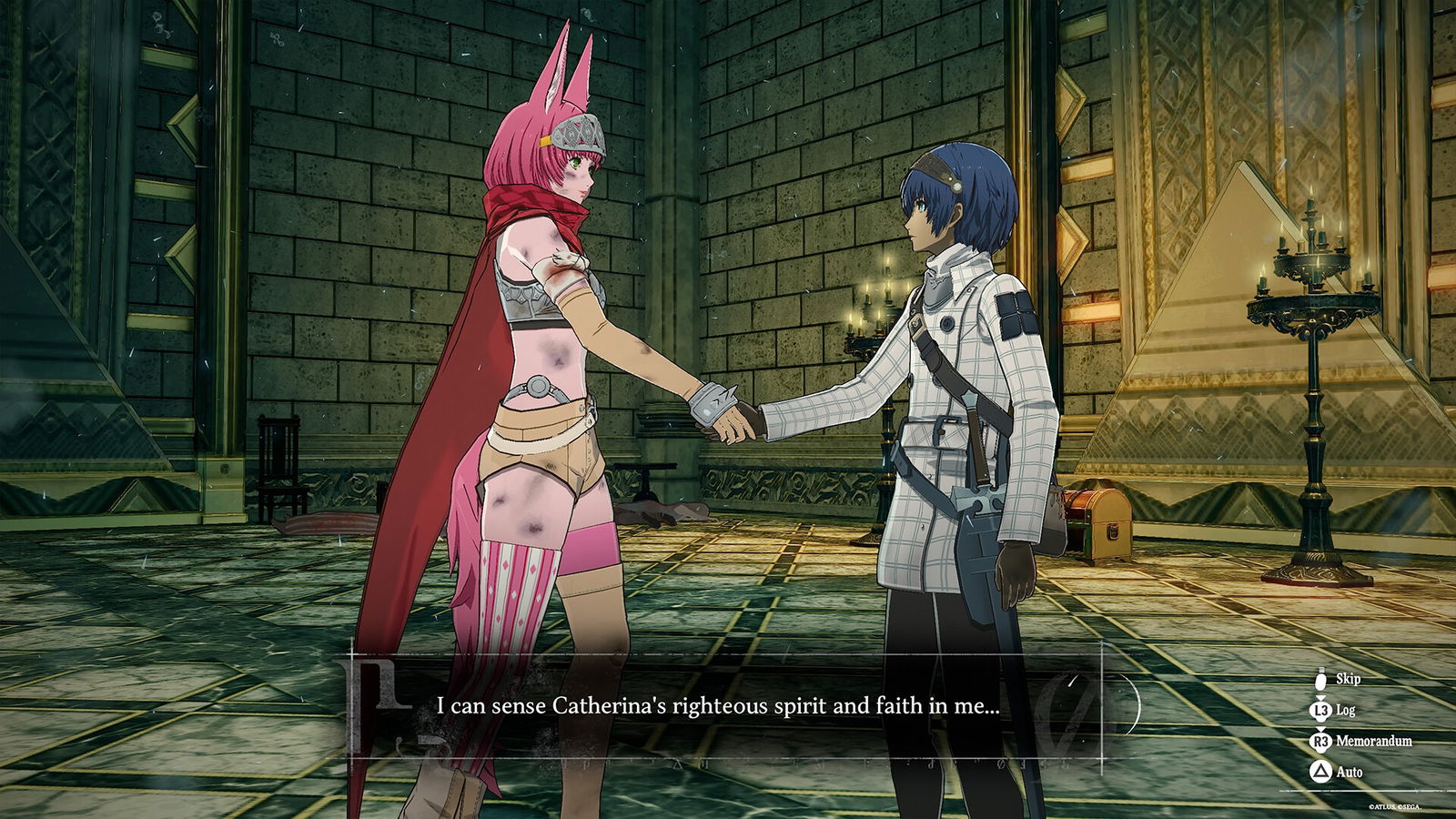
Metaphor: ReFantazio combines traditional RPG mechanics with engaging turn-based combat and strategic planning. The battle system is a refined version of what Atlus has perfected in previous games like Persona, focusing on exploiting enemy weaknesses, smart use of abilities, and careful party management. Character development goes beyond combat stats, with personal quests and dialogue choices that allow players to influence relationships and uncover teammates’ backstories, unlocking their true potential.
The big difference in Metaphor: ReFantazio is that while each character—except for the player character—has a skill they excel at, any character can be assigned to any Archetype. These Archetypes range from classic knights, wizards, and thieves to snipers and merchants, and each character’s bespoke type can only be unlocked when their relationship level has been fully maxed out.
While smart party composition is crucial, this system also means you can have any character take on any role. However, later in the story, it becomes essential to figure out which character is best suited for specific roles as specialization becomes increasingly important.
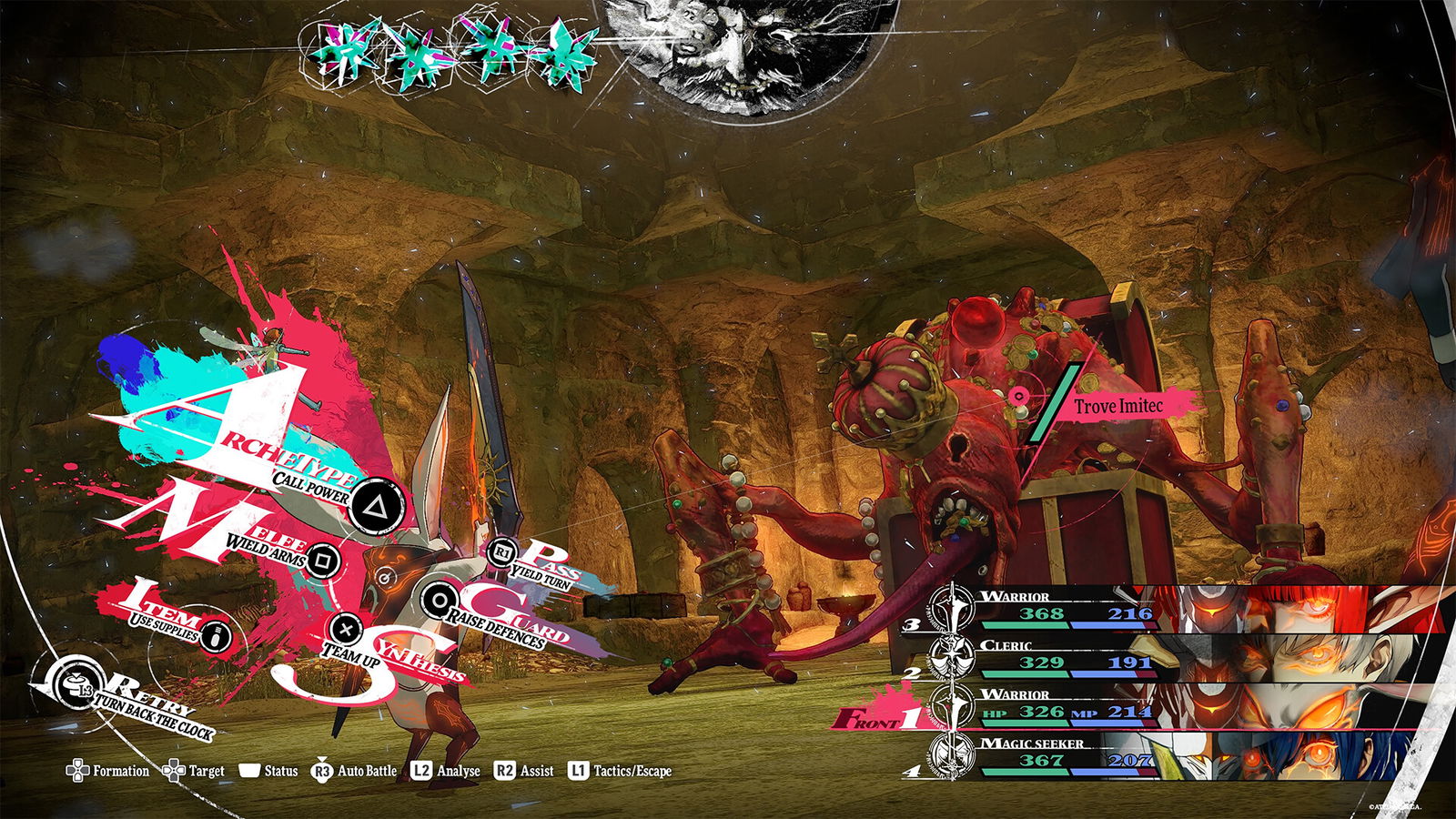
The pacing of the gameplay is well-balanced, with periods of intense combat mixed with exploration, character development, and moments of story-driven tension. That said, the pacing occasionally dips, particularly in the middle of the game during more complex dungeons and questlines that can feel drawn out. While these sections add depth to the narrative, some can feel a bit too stretched out.
“The game’s strength lies in its ability to craft memorable characters, thoughtful political intrigue, and an emotionally charged storyline.”
Visually, Metaphor: ReFantazio is a feast for the eyes, combining detailed character designs with beautifully realized environments. The kingdom’s landscapes serve as both eye candy and a reflection of its struggle for power—decay in some areas, grandeur in others. Character designs are distinct, with each hero and villain having a unique visual style that mirrors their personality and role in the story. The attention to detail in the cutscenes and battle animations enhances the emotional weight of the narrative, making each character’s actions feel deliberate and impactful.
The music in Metaphor: ReFantazio is hauntingly beautiful, adding layers of emotional depth to the story and intensifying the gameplay. Composed by Shoji Meguro, the soundtrack blends orchestral pieces with ambient tracks that perfectly fit the game’s overall tone. The battle themes, with powerful operatic chanting, are standout moments, while quieter sections feature delicate melodies that capture the characters’ personal struggles. However, while the soundtrack fits the themes of church, state, and setting well, it doesn’t quite “bop” as much as Persona 3, 4, or 5’s soundtracks. At times, I found myself wishing for a more distinct musical identity.
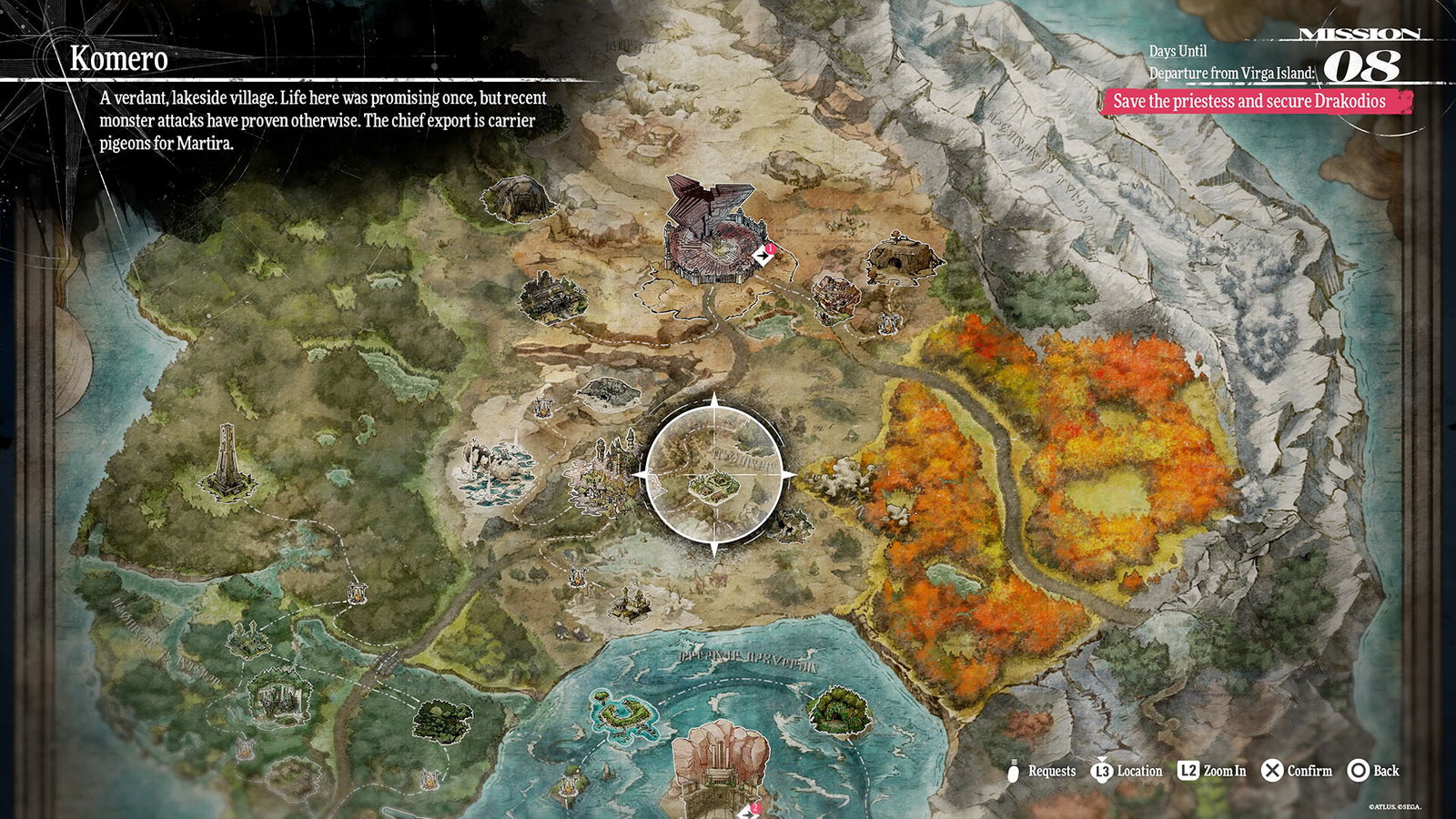
The voice acting in Metaphor: ReFantazio is incredible, bringing each character to life with remarkable depth. The emotions and motivations of the cast elevate the story’s overall emotional weight, with party members and villains alike feeling fully fleshed out. The performances span intense confrontations to tender moments of reflection, immersing players deeply in the world.
“Metaphor: ReFantazio is a masterfully crafted JRPG that combines political intrigue, rich storytelling, and strategic combat into a gripping and emotional experience.”
The game also features numerous side quests and optional conversations that expand on the world and its characters. Like in other Atlus games, these provide additional context and character development, unlocking new locations and offering more opportunities to explore different combat strategies. The emotional depth you experience in Metaphor: ReFantazio will depend on how much you invest in expanding your Royal Virtues, which function like Metaphor‘s Social Stats. You can raise these by reading books, honing skills with party members, or completing tasks in the towns scattered across the kingdom.
Metaphor: ReFantazio is a masterfully crafted JRPG that combines political intrigue, rich storytelling, and strategic combat into a gripping and emotional experience. While the pacing can occasionally falter, and some areas may feel visually repetitive, the game’s strengths far outweigh its shortcomings.
Metaphor: ReFantazio is an absolute must-play.
